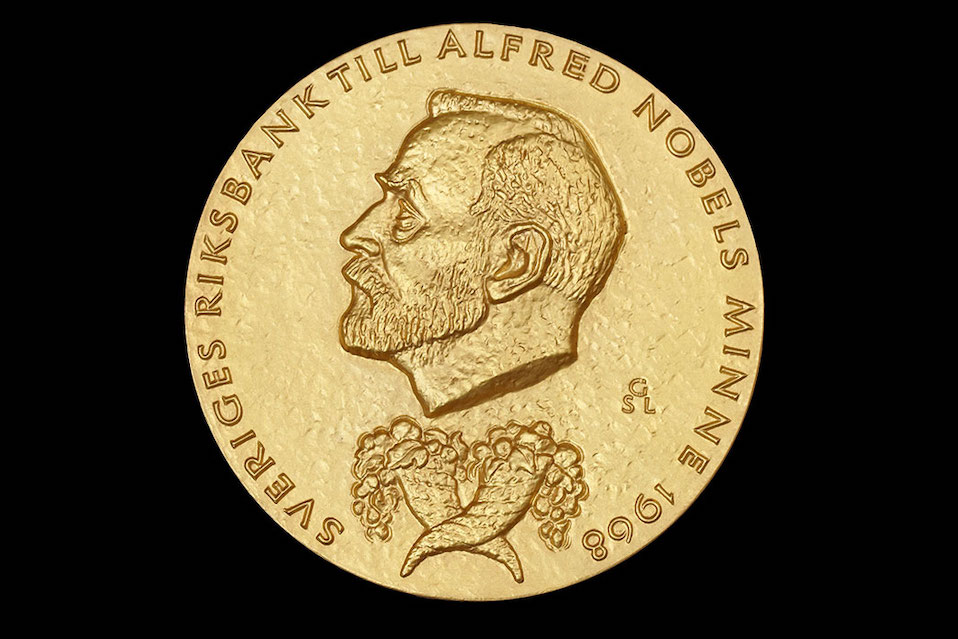The 2025 Nobel Prize in Economic Sciences has been awarded to Joel Mokyr, Philippe Aghion, and Peter Howitt for their foundational contributions to understanding how technological innovation fuels long-term economic expansion.
Mokyr, holding positions at Northwestern University and the Eitan Berglas School of Economics, received half of the prize. The remaining portion was jointly awarded to Aghion, affiliated with the Collège de France, INSEAD, and the London School of Economics, and to Howitt, Professor Emeritus at Brown University.
Both Mokyr and Aghion have prior ties to the American Economic Association, with Mokyr recognized as a Distinguished Fellow in 2018 and Aghion as a Foreign Honorary Member since 2017, in addition to winning the AEJ Best Paper Award in 2017.
The Royal Swedish Academy of Sciences highlighted the trio’s role in clarifying how innovation drives economic development. Their research illustrates that sustained growth depends on managing tensions between new entrants and established firms. Without effective institutional frameworks, incumbent businesses and powerful interest groups may suppress breakthroughs that threaten their dominance.
Mokyr’s historical analysis examined why the Industrial Revolution succeeded in generating continuous progress, unlike earlier bursts of invention. He emphasized that enduring innovation requires not only practical knowledge but also a deeper comprehension of underlying principles—what he describes as epistemic understanding. His findings underscore the value of scientific inquiry and societal adaptability in fostering economic advancement over centuries.
Aghion and Howitt advanced the theoretical modeling of dynamic competition. Using formal economic frameworks, they demonstrated how superior products gradually replace outdated ones in the marketplace, giving mathematical rigor to Joseph Schumpeter’s idea of “creative destruction.” Their models show how this process, when supported by appropriate policies, can lead to persistent growth rather than temporary booms.
John Hassler, Chair of the Prize Committee, noted that the laureates’ insights reveal economic progress is not automatic. “We must actively preserve the conditions that allow for renewal and transformation in the economy,” he said, warning that failure to do so risks slipping into stagnation.
— news from American Economic Association
— News Original —
Congratulations to Joel Mokyr, Philippe Aghion, and Peter Howitt on being awarded the 2025 Nobel Prize in Economic Sciences
This year ‘s Nobel Prize in Economic Sciences was awarded to Joel Mokyr, Philippe Aghion, and Peter Howitt for their work on the technological roots of sustained economic growth. n nMokyr, Robert H. Strotz Professor at Northwestern University and Sackler Professorial Fellow at the Eitan Berglas School of Economics, was awarded one half of the 2025 Nobel Prize in Economics. The other half was shared jointly by Aghion, Professor at the Collège de France, INSEAD, and the London School of Economics; and Howitt, Professor Emeritus of Economics at Brown University. n nMokyr is an AEA Distinguished Fellow (2018) and Aghion is an AEA Foreign Honorary Member (2017), as well as a previous winner of the AEJ Best Paper Award (2017). n nJoel Mokyr Philippe Aghion Peter Howitt n nIn its announcement on Monday, the Academy credited the three economists “for having explained innovation-driven economic growth.” The laureates showed how economic competition creates conflicts that must be managed in a constructive manner. Otherwise, innovation will be blocked by established companies and interest groups that risk being put at a disadvantage. n nJoel Mokyr ‘s historical research explored why the innovations of the Industrial Revolution took off where earlier innovations faltered. He found that for innovation to become self-sustaining, societies need more than just knowledge that something works; they need a deep understanding of why it works as well. Mokyr ‘s work demonstrates the importance of scientific literacy and openness to change for long-run economic growth. n nPhilippe Aghion and Peter Howitt used mathematical models to reveal the mechanisms of sustained growth. They showed how newer, superior products continuously enter markets and displace companies selling older versions, helping to make Joseph Schumpeter ‘s concept of “creative destruction” mathematically precise in the context of long-run growth. n n”The laureates ‘ work shows that economic growth cannot be taken for granted. We must uphold the mechanisms that underlie creative destruction, so that we do not fall back into stagnation,” says John Hassler, Chair of the Committee for the prize in economic sciences.
